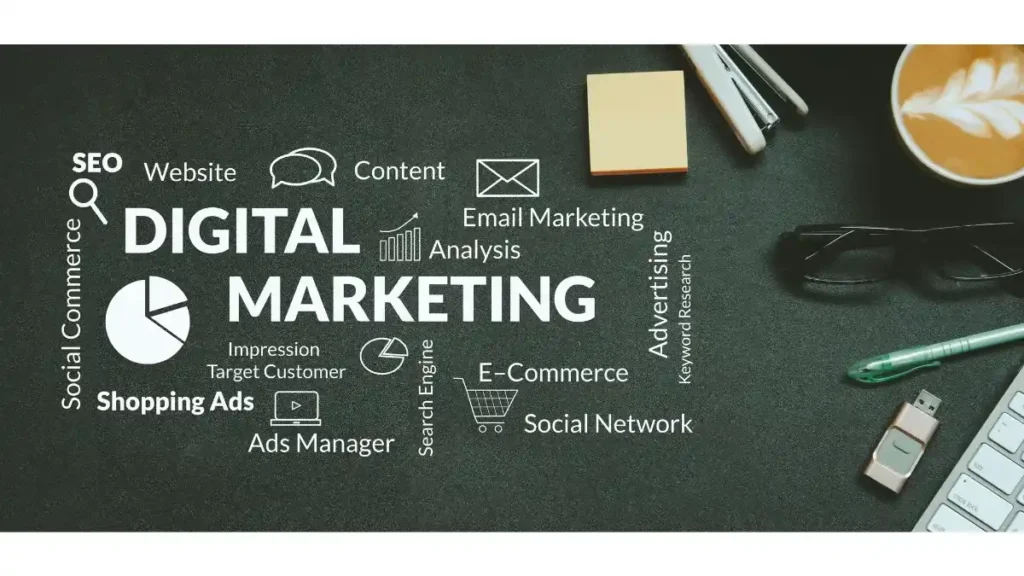What is Digital Marketing Strategy That Tracks Users Across The Web?
In the fast-evolving world of digital marketing, tracking users across the web has become a cornerstone strategy for businesses aiming to deliver personalized experiences and maximize campaign effectiveness. Known as web tracking, this approach involves collecting data on users’ online behavior to tailor advertisements, improve engagement, and drive conversions.
As consumers navigate websites, social media platforms, and search engines, web tracking enables marketers to understand preferences and deliver targeted content.
This article delves into the mechanics of web tracking, its significance in digital marketing, and the ethical considerations it raises. By exploring this strategy, businesses and consumers can better navigate the dynamic digital landscape.
What is Web Tracking in Digital Marketing?
Web tracking is the process of monitoring and collecting data on users’ online activities, such as the websites they visit, the ads they click, and the products they view. This strategy relies on tools like cookies, pixels, and device fingerprinting to gather insights into user behavior across multiple platforms.
Cookies, small text files stored on a user’s device, are the most common tracking mechanism, enabling marketers to recognize returning visitors and personalize their experiences. For instance, a user browsing shoes on an e-commerce site may later see targeted ads for similar products on social media. Additionally, tracking pixels embedded in websites or emails provide data on user interactions, helping marketers refine their campaigns.
Moreover, web tracking supports behavioral targeting, where advertisements are tailored based on a user’s interests and online habits. Advanced technologies, such as machine learning algorithms, analyze vast datasets to predict consumer preferences, making campaigns more effective.

In 2024, over 80% of digital advertising budgets were allocated to strategies involving web tracking, underscoring its dominance in the industry. By leveraging these tools, businesses create seamless, relevant user experiences that drive engagement and loyalty.
Why is Web Tracking Essential for Digital Marketing?
Web tracking is a vital component of digital marketing because it enables businesses to deliver highly personalized content, improving the efficiency of their advertising efforts. By understanding user preferences, marketers can craft ads that resonate with specific audiences, increasing click-through rates and conversions.
For example, a travel agency tracking a user’s searches for beach destinations can display ads for tropical vacation packages, enhancing the likelihood of a booking. This precision targeting reduces wasted ad spend, ensuring businesses achieve a higher return on investment.
Also Read: Amazing AI Powered Tools Revolutionize Work and Creativity
Furthermore, web tracking supports retargeting, a strategy where businesses re-engage users who have previously interacted with their brand but did not convert. Retargeting campaigns, which rely on tracking data, have been shown to increase conversion rates by up to 150% compared to standard ads.
In a competitive digital marketplace, where consumers are bombarded with information, web tracking empowers businesses to stand out by delivering relevant, timely content. This strategy is particularly crucial for small and medium enterprises seeking to compete with larger brands on limited budgets.
Benefits of Web Tracking for Businesses and Consumers
For businesses, web tracking offers actionable insights that inform marketing strategies, optimize campaigns, and enhance customer experiences. By analyzing user data, companies can identify high-performing channels, refine messaging, and allocate budgets effectively.
Additionally, tracking enables A/B testing, where marketers compare different ad versions to determine which resonates best with audiences. These insights drive continuous improvement, ensuring campaigns remain relevant in a rapidly changing digital environment.
Also Read: Helping Kids Build Digital Intelligence for Online Safety
Consumers also benefit from web tracking when it delivers personalized experiences that align with their interests. For instance, a user searching for fitness equipment may appreciate seeing ads for workout gear rather than unrelated products.
Personalized recommendations, powered by tracking, save time and enhance the online shopping experience. However, the challenge lies in balancing personalization with privacy, as excessive tracking can erode consumer trust if not handled transparently.
Challenges and Ethical Considerations
Despite its advantages, web tracking raises significant ethical and privacy concerns that businesses must address to maintain consumer confidence. Many users are unaware of the extent to which their online activities are monitored, leading to unease about data collection practices.
In response, regulations like the General Data Protection Regulation (GDPR) in Europe and the Digital Personal Data Protection Act (DPDPA) in India, effective from 2024, mandate transparent data practices and user consent for tracking. Non-compliance can result in hefty fines, with penalties reaching up to 7% of a company’s annual revenue under GDPR.
Also Read: Perplexity AI Careers A Gateway to Innovation in 2025
Moreover, the phasing out of third-party cookies by major browsers like Google Chrome, expected to be complete by mid-2025, poses a challenge for traditional web tracking. Marketers are shifting toward privacy-focused alternatives, such as first-party data and contextual targeting, to adapt to these changes.
Businesses must prioritize ethical tracking practices, such as obtaining explicit consent and providing opt-out options, to build trust and comply with regulations. By addressing these challenges, companies can sustain the effectiveness of web tracking while respecting user privacy.
The Future of Web Tracking in Digital Marketing
As technology evolves, web tracking is poised to become more sophisticated, driven by advancements in artificial intelligence and privacy-preserving techniques. Emerging tools like federated learning and zero-party data, where users voluntarily share preferences, are reshaping how marketers collect insights without compromising privacy.
Additionally, the rise of privacy-focused browsers and ad blockers is pushing businesses to adopt transparent, consent-driven tracking models. In 2025, experts predict that 60% of digital marketing strategies will prioritize first-party data to align with consumer expectations and regulatory requirements.
In this evolving landscape, businesses that embrace ethical and innovative tracking practices will gain a competitive edge. By investing in technologies that balance personalization with privacy, marketers can continue to deliver relevant experiences while fostering consumer trust. Web tracking, when executed responsibly, remains a powerful tool for driving digital marketing success in an increasingly connected world.
Also Read: Boost Your Business, Easy GST Registration in Punjab Unveil
In Conclusion, Web tracking is a fundamental digital marketing strategy that enables businesses to follow users across the web, delivering personalized content and optimizing campaign performance. By leveraging tools like cookies and pixels, marketers gain insights into user behavior, enabling precise targeting and retargeting efforts.
While web tracking offers significant benefits, including enhanced engagement and cost efficiency, it also raises privacy concerns that demand ethical practices and regulatory compliance. As the digital landscape evolves, businesses must adapt to privacy-focused tracking methods to maintain consumer trust and campaign effectiveness. Ultimately, web tracking, when used responsibly, empowers businesses to thrive in a competitive market while enhancing the online experience for consumers.
FAQs About Web Tracking in Digital Marketing
What is web tracking in digital marketing?
Web tracking involves collecting data on users’ online activities, such as website visits and ad clicks, using tools like cookies and pixels to personalize marketing campaigns. It helps businesses deliver targeted content based on user behavior.
Why is web tracking important for digital marketing?
Web tracking enables precise targeting, retargeting, and personalization, improving ad effectiveness, increasing conversions, and optimizing marketing budgets for better returns. It helps businesses reach the right audience with relevant content.
What tools are used for web tracking?
Common tools include cookies, tracking pixels, device fingerprinting, and analytics platforms like Google Analytics, which monitor user interactions across websites and apps. These tools provide data for behavioral targeting.
Are there privacy concerns with web tracking?
Yes, web tracking raises privacy concerns, as users may not consent to data collection. Regulations like GDPR and DPDPA require transparent practices, and non-compliance can lead to significant fines.
How is web tracking evolving with privacy regulations?
With third-party cookies phasing out by 2025, marketers are adopting first-party data, contextual targeting, and privacy-preserving technologies to comply with regulations while maintaining effective tracking.






